On the morning of April 29, the 2024 Annual General Meeting of Shareholders of Vietnam Prosperity Joint Stock Commercial Bank (VPBank, HoSE: VPB) took place successfully.
In 2024, VPBank shareholders approved a pre-tax profit business plan of VND 23,165 billion, an increase of 22% compared to the previous year's results. Of which, VPBank's profit is VND 20,709 billion, FE Credit's profit is VND 1,200 billion, VPBank Securities' profit is VND 1,902 billion and OPES Insurance's is VND 873 billion.
The bank also targets outstanding credit balance of VND752,104 billion, an increase of 25% compared to 2023. The above growth rate is based on the bank's needs and capacity.
FE Credit is the "dark spot" of VPBank in 2023
Sharing at the congress, VPBank General Director Nguyen Duc Vinh assessed that objective factors from the weak recovery of the economy and three market crises (liquidity, bonds and real estate markets) have negatively impacted the performance of the banking industry in general and VPBank in particular.
In particular, Mr. Vinh emphasized that FE Credit's loss of nearly VND 3,700 billion has affected the bank's final results and commented that this is the bank's "dark spot" in 2023.
However, the bank's leader also said that in the difficult context of 2023, most credit institutions have decreased income and "FE Credit has the largest scale so it has to bear the most".
Update on the situation in the first quarter of 2024 shows that FE Credit's disbursement growth in the first quarter of the year reached more than 20%, the bad debt ratio has decreased from over 20% to below 20%. After restructuring, FE Credit has acquired a new customer portfolio, expected to bring new prospects to FE Credit, stopping the decline in business.
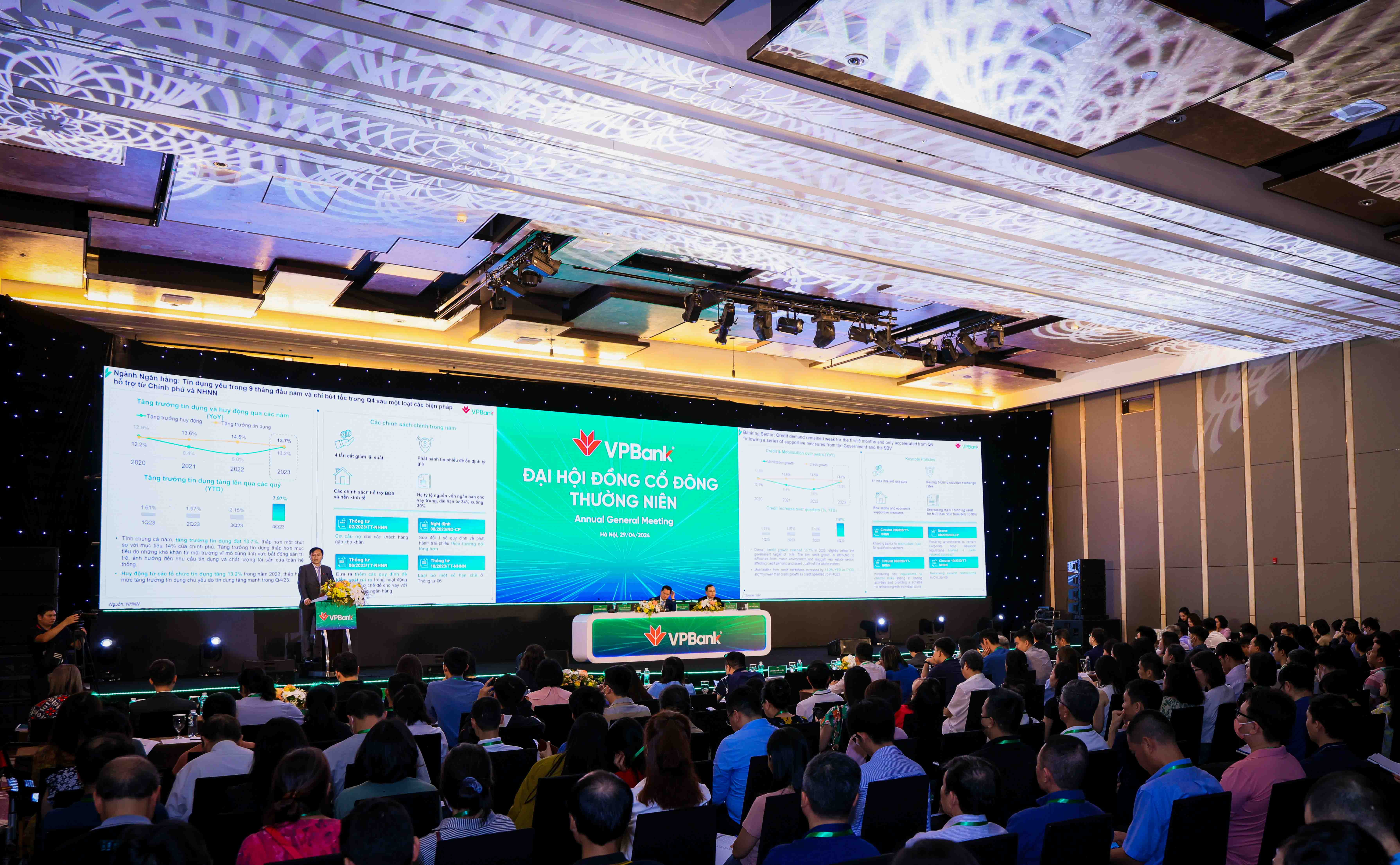
Overview of VPBank's 2024 Annual General Meeting of Shareholders.
“Regarding when FE Credit's losses will be overcome, the roadmap is available. The board of directors believes that 2024 is a pivotal year. FE Credit itself has potential. We believe that from 2025 onwards, FE Credit's profits will return to VND3,000 - 4,000 billion,” said Mr. Vinh.
VPBank's General Director said that the growth target for 2022 - 2026 has not changed. If the previous years were slow somewhere, the coming years, especially the period of 2024 - 2025, will be the time for the Board of Directors to promote, overcome and regain growth.
There are 5 main growth orientations for 2024: focusing on asset quality, synchronizing all customer segments, promoting sustainable development strategies, consolidating technology platforms and expanding added values for customers through the digital ecosystem, seizing development opportunities and finding new growth drivers in the ecosystem.
"In difficult conditions, we may encounter difficulties in income and profit, but we do not stop investing in the foundation to prepare for a breakthrough," said Mr. Vinh.
VPBank gains nothing from a financial perspective when restructuring the zero-dong bank
After setting aside funds, VPBank's remaining profit is VND8,353 billion. In 2024, the bank plans to use VND7,934 billion to pay cash dividends, equivalent to a rate of 10%. After paying dividends, the remaining profit is VND418.6 billion. The dividend payment period is the second and third quarters of 2024.
Regarding dividend payment, Chairman of VPBank Board of Directors Ngo Chi Dung said that VPBank will maintain its commitment to shareholders at the 2023 Annual General Meeting of Shareholders that the bank will pay cash dividends to shareholders for 5 consecutive years.

At the meeting, VPBank shareholders also approved the participation in the zero-dong bank restructuring. The bank's chairman said that in terms of financial capacity and management capacity, not all banks can undertake the mandatory transfer of weak banks because these banks have large accumulated losses and bad debts.
“VPBank is more special because SMBC’s participation helps us have a large capital base. Participating in the zero-dong bank restructuring from a financial perspective does not bring anything to VPBank, but will benefit in other aspects such as credit growth at a scale higher than the industry average; along with the ability to open foreign room to 30% is an important condition to increase VPBank’s capital scale in the near future,” Mr. Dung stated.
In addition, the bank's leaders also believe that VPBank's participation in restructuring zero-dong banks will help the overall banking system become better, contributing to the system when it has the capacity, strategy, and appropriate mechanisms.
Speaking more clearly about the support from SMBC, General Director Nguyen Duc Vinh said that SMBC helps VPBank improve its compliance management capacity so that VPBank can gradually raise its index closer to international practices, in areas where VPBank has advantages.
“SMBC’s strength is cheap capital, so they support VPBank a lot in terms of capital. Previously, VPBank was a retail bank, focusing on SMEs, but now with SMBC, VPBank has become a multi-functional bank, focusing not only on SMEs but also on large enterprises,” Mr. Vinh shared.
Real estate debt has very high potential for resolution
Assessing the potential for lending in the real estate segment in 2024, the bank's General Director said that this is a potential industry group, bringing many benefits to the bank. Currently, the proportion of loans in this group to VPBank's total outstanding loans is recorded at 19% for real estate and construction enterprises and 16% for home loans.
“VPBank is one of the three largest home loan banks in the market. Home loans are still an important segment of VPBank this year. When there is a problem, real estate debt is likely to encounter difficulties, but real estate debt is also the debt with the highest potential for resolution. The real loss rate of this sector is also much lower than other sectors,” Mr. Vinh analyzed.
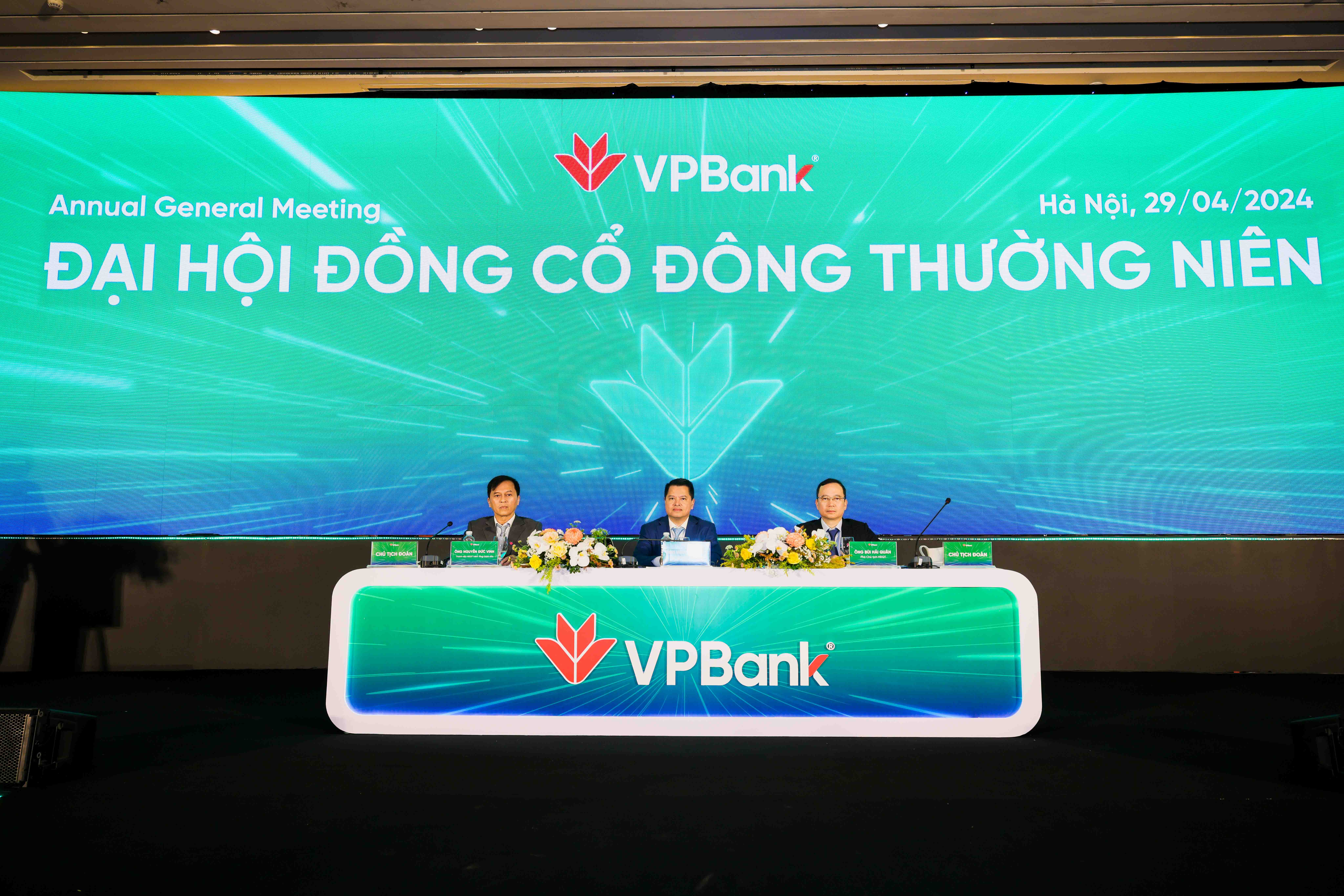
The Presidium chaired the 2024 Annual General Meeting of Shareholders of VPBank.
Chairman Ngo Chi Dung also stated that real estate lending is a potential field, but recently it has suffered many negative impacts. However, the bank clearly distinguishes between normal apartment products and highly speculative products to decide whether to finance or not.
Accordingly, this segment is always strictly controlled by the bank, has complete legal documents and focuses on segments with real buying/real living needs.
Responding to shareholders' questions about bad debt handling in 2024, Mr. Ngo Chi Dung said that this year the bank aims to control bad debt below 3%.
It is expected that in 2024, VPBank will set aside 13,500 billion for risk provisions and recover 3,000 billion from bad debts. Bad debts are expected to gradually decrease in the last months of the year and recover well from 2025. In case of better performance, the reserve savings will become the bank's future profits .
Source






















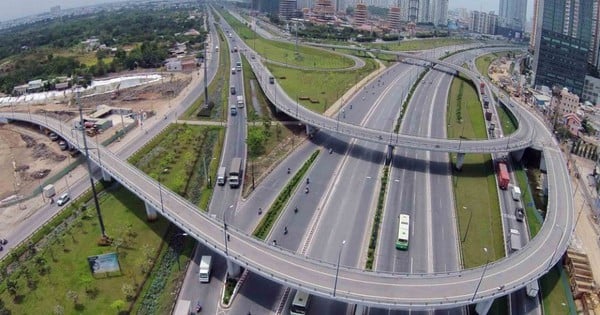














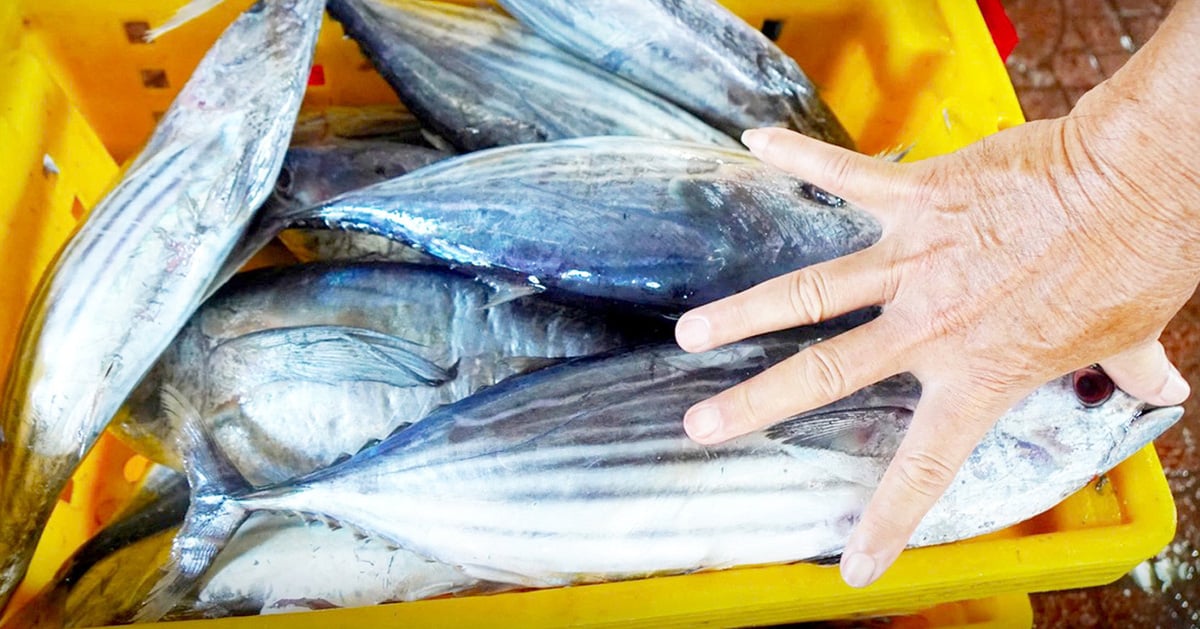

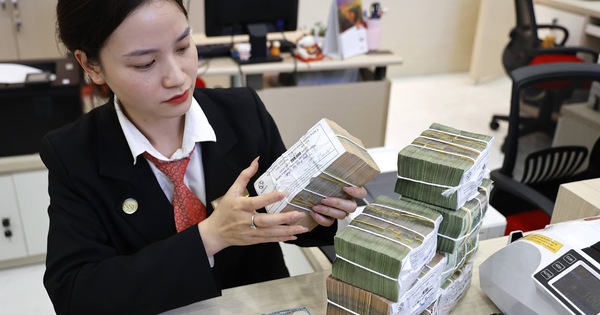
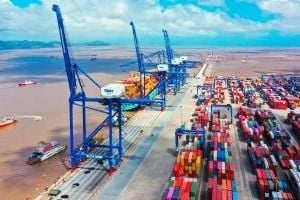



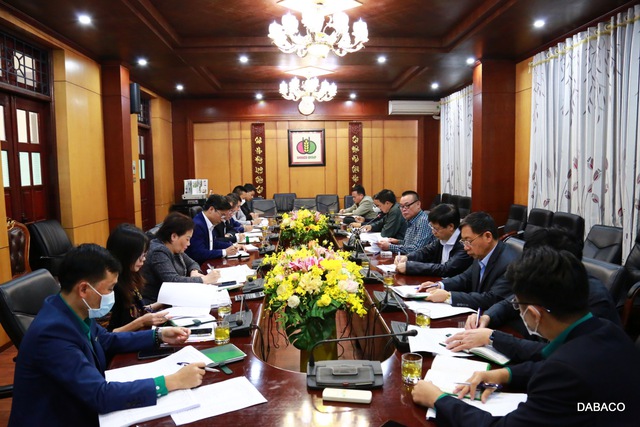















Comment (0)